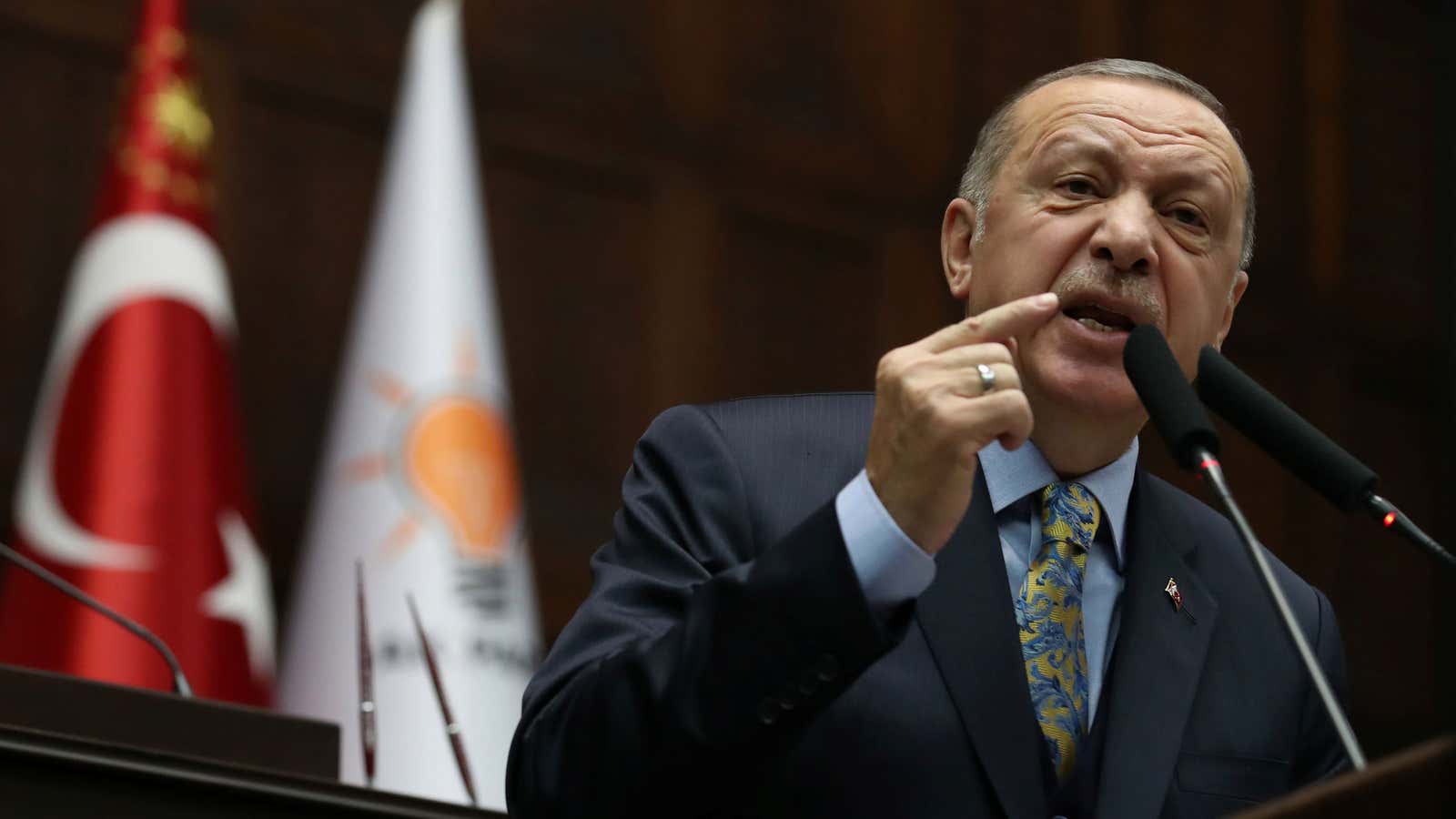After a few months of relative calm, Turkish authorities are once again locked in a bitter battle with foreign-exchange traders. Ahead of local elections this weekend, Turkey’s government has been trying to prevent a damaging slide in the lira. One of its methods is to get Turkish banks to block foreign banks from selling the currency, essentially trapping them in trades, according to Bloomberg.
Still, the Turkish lira weakened by about 5% this morning against the dollar after data showed the nation’s central bank continued to run down foreign currency reserves, evidence that it is aggressively trying to prop up the lira. According to the Financial Times (paywall), Turkey’s central bank burned through about $10 billion worth of reserves in the first three weeks of March.
Turkey is trying to prevent a repeat of last June, when the lira dropped precipitously ahead of general elections. President Recep Tayyip Erdogan’s party is likely to lose support in the March 31 local elections, with some major cities, including the capital Ankara, potentially switching to opposition control. Though Erdogan’s grip on power isn’t realistically threatened, since he assumed more executive control following the general election last year, that doesn’t mean the upcoming campaign isn’t fiercely fought. He has threatened foreign sellers of the lira with “a heavy price” for their “provocative acts” (paywall), and Turkey’s banking regulator recently opened an investigation into JPMorgan for “misleading and manipulative” research suggesting that clients short the lira.
“The virulent and aggressive rhetoric adopted by Erdogan during the election campaign is unprecedented,” noted Wolfango Piccoli of Teneo Intelligence. “The extreme measures taken this week to protect the value of the Turkish Lira further attests to the importance attached by Erdogan to the vote.” Erdogan said those deemed speculators in the currency would be punished.
As international banks report that local banks have been unable (or unwilling) to provide them with liquidity, the offshore overnight swap rate (a measure of how much it costs foreign banks and hedge funds to borrow lira, most likely to short it) soared by more than 1,000% this week.
While Turkish authorities take heavy-handed measures to stabilize the currency, investors have dumped other Turkish assets, too. Bond prices slumped, sending the yield on two-year bonds above 20%. Stocks, meanwhile, slid the most since July, according to Bloomberg. There’s also evidence that Turkish residents are increasingly stocking up on euros and dollars.
Short-term capital controls will do little to stem the currency’s long-term decline. The more fundamental issues, such as low growth, high inflation, and large amounts of foreign debt, need to be addressed, according to analysts at Commerzbank. If they aren’t, the government would have to implement more lasting controls and deal with the reputational damage that would inflict among investors. Permanent controls would probably result in lower foreign capital inflows, making it harder for Turkey to deal with its pile of foreign debt. But right now, it looks like the government cares more about the optics of this weekend’s election than the long-term economic pain these actions might generate.
